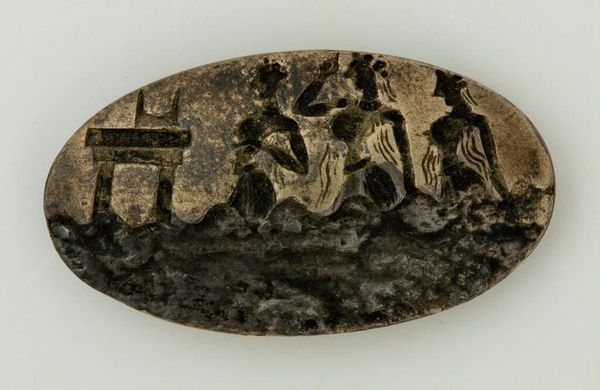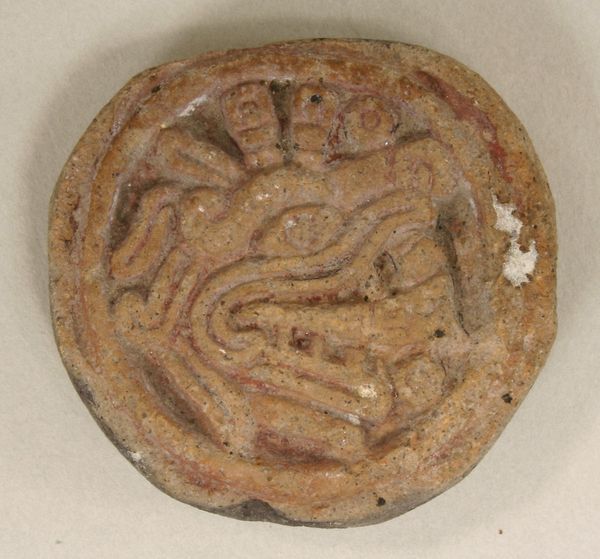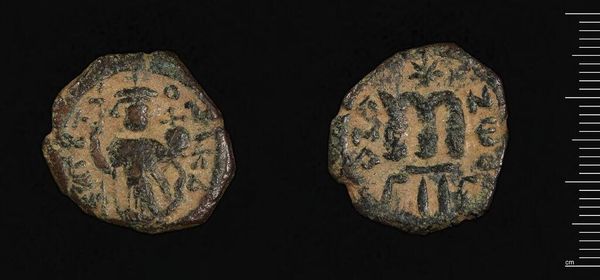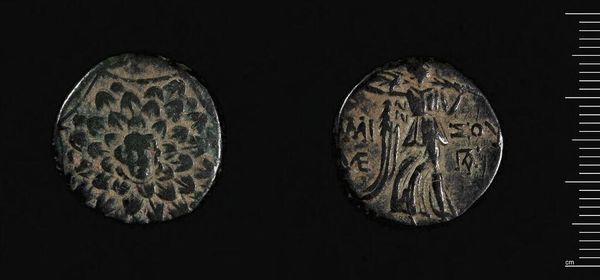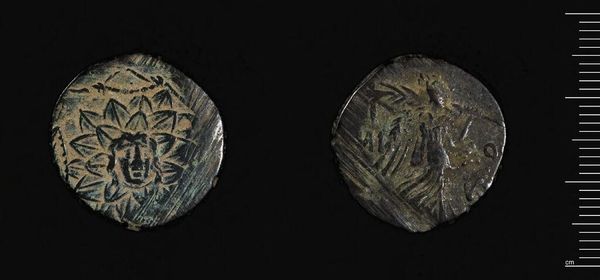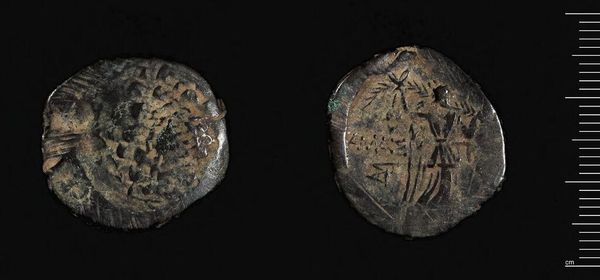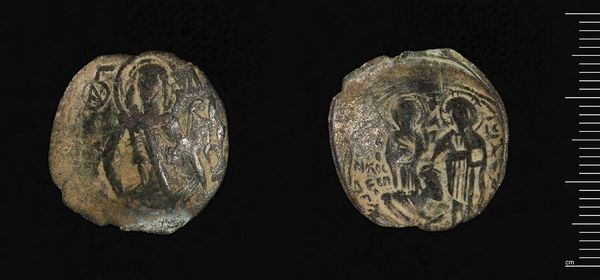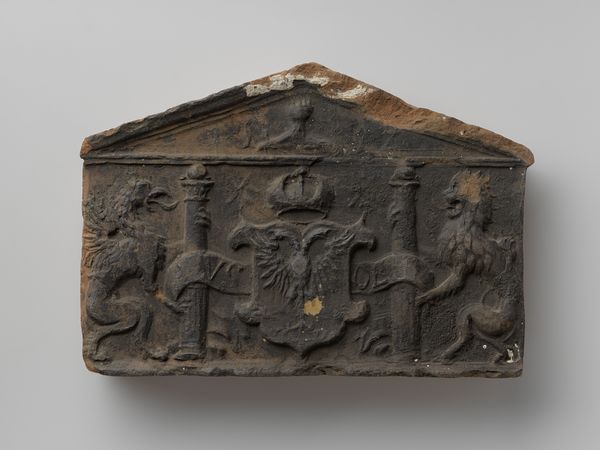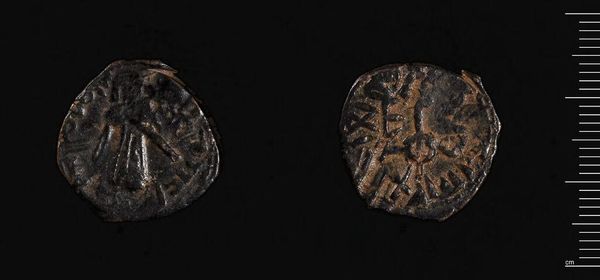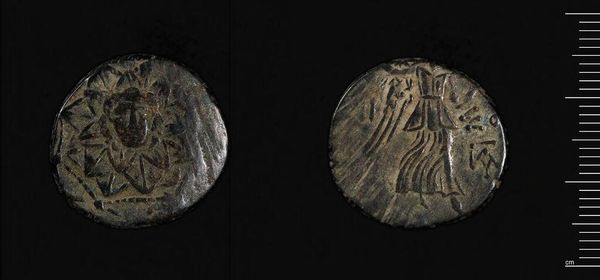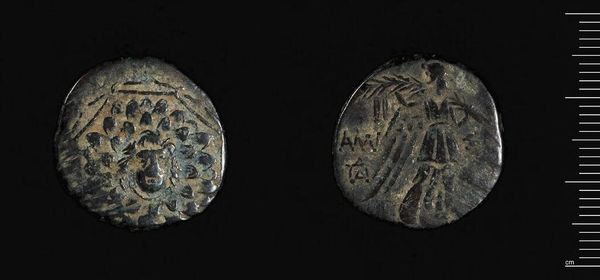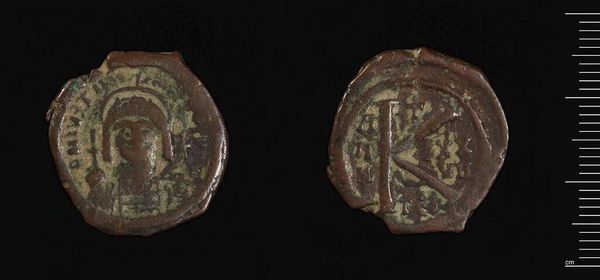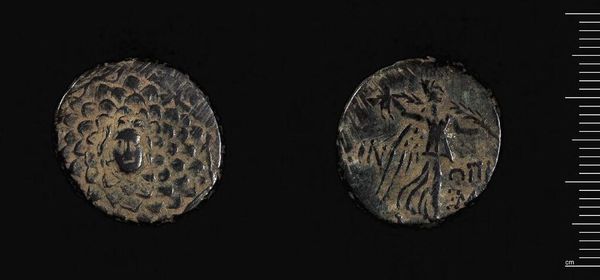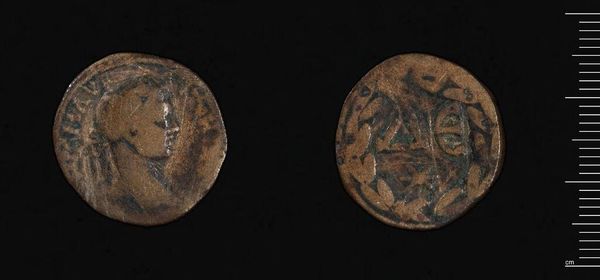
carving, metal, bronze, sculpture, ivory
#
carving
#
animal
#
metal
#
sculpture
#
ancient-egyptian-art
#
bronze
#
figuration
#
ancient-mediterranean
#
sculpture
#
history-painting
#
ivory
Copyright: Public domain
Editor: This is a fascinating little piece – a scarab, dated to around 1500 BC, titled "Scarab with a Lion Hunting Horned Animals." It looks like it’s made of ivory or a similar material. The detail is incredible for something so old. What's striking me is how dynamic it is; despite its small size, there’s so much implied movement. What catches your eye about it? Curator: I'm immediately drawn to the labor involved in crafting such an intricate design on such a small scale, especially considering the available tools at the time. Consider the socioeconomic implications – who commissioned this? Was the artist a craftsman, an enslaved worker? The raw material too, like ivory, signifies consumption. Where did it originate, and how was it traded? It’s more than just aesthetic, it's about production. Editor: So, you’re less focused on the hunting scene itself, and more on the creation and distribution of the object? Curator: Precisely! While the imagery undoubtedly held symbolic importance for its original owner, I’m compelled by questions regarding its creation. It makes one consider its potential use beyond its symbolic weight, perhaps it was used as a seal. Were these scarabs produced en masse or individually crafted, and how did this shape artistic traditions during that time? Editor: That makes a lot of sense. I hadn’t thought about the logistical side of ancient art production. It makes me wonder about the life and conditions of the artist themselves, a dimension you don’t often consider. Curator: And think about the consumption involved in using an organic material like ivory, which degrades over time. This necessitates constant demand and procurement for a durable, personal artifact. Editor: Thinking about the ivory trade routes puts the art object in a completely different frame of reference! I never looked at ancient art through this kind of lense. Curator: Hopefully you'll consider materiality going forward when trying to grasp a full understanding.
Comments
No comments
Be the first to comment and join the conversation on the ultimate creative platform.
